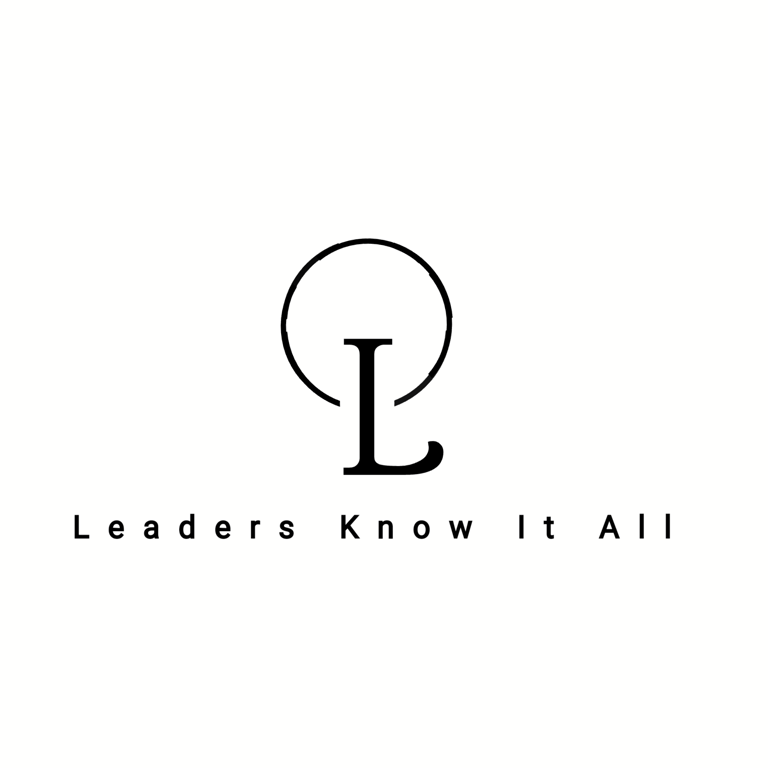Leadership Is Not a Title—It’s a Daily Practice
Whether you’re leading a team of ten or influencing silently behind the scenes, remember this—your leadership matters. Not for the applause, but for the impact. Not for the spotlight, but for the legacy. Keep showing up. The world needs more leaders like you.
SERVANT LEADERSHIPLEADERSHIPEMPOWERING TEAMHOW TO BECOME A GOOD LEADEREFFECTIVE LEADERSHIPLEADERS DRIVE SUCCESSLEADERS HAVE VISIONGOOD LEADERLEADERSHIP TRAITSMINDSETPEOPLE LEADERLEADERSHIP SKILLSLEADING WITHOUT TITLEBECOMING A LEADERBEST LEADERSHIP STYLELEADERPEOPLE LEADERSHIPLEADERSHIP STYLESRESPONSIBILITIES OF A LEADERSECRETS OF LEADERSHIPLEADERSHIP MATTERSPEOPLE MANAGERLEADERSHIP QUALITIESLEADERSHIP ESSENTIALS
Leaders know it all
6/9/20255 min read


Leadership Is Not a Title—It’s a Daily Practice
“A leader is one who knows the way, goes the way, and shows the way.” – John C. Maxwell
For years, leadership was viewed through the lens of hierarchy—your job title, your designation, your seat at the table. But times have changed. Today, leadership has less to do with position and more to do with presence. It’s not about managing people; it’s about influencing, inspiring, and impacting lives, even if you're not the one calling the shots.
Everyone Is a Leader
You don’t need a title to lead. Whether you’re managing a team, guiding your family, leading a cause, or mentoring your colleague, leadership is influence, not rank.
You are practicing leadership when:
You take initiative without being told
You encourage a friend through a hard day
You make thoughtful decisions in difficult moments
You speak up for what’s right, even when it’s unpopular
In essence, leadership is presence over position, and it begins with how you show up—consistently, consciously, and courageously.
Why Leadership Is Everyone’s Business
Leadership is not just for CEOs, managers, or world leaders. If you've ever helped a colleague get unstuck, encouraged someone on a bad day, or taken initiative without being asked, you’ve led. You don’t need a title to lead. Whether you’re managing a team, guiding your family, leading a cause, or mentoring a peer, leadership is influence, not rank.
Leadership is not limited to executives or entrepreneurs. It shows up in:
Ownership – Taking responsibility instead of blaming others
Integrity – Admitting mistakes and practicing accountability
Empathy – Creating safe spaces where others feel heard
Influence without authority – Leading through example, not control
In homes, schools, startups, or boardrooms, real leadership happens through daily choices. It’s the courage to act with heart. The resilience to stand tall in uncertainty. The clarity to lead when others hesitate.
Leadership in the Age of Complexity
Let’s be honest: leading today is not easy. We’re living in times of extreme change—technological leaps, global disruptions, hybrid workplaces, and shifting values. The rulebook is being rewritten, and leaders are expected to adapt at lightning speed.
But amidst all this, one thing remains unchanged: People don’t leave jobs; they leave leaders.
What defines a strong leader in this new era?
Emotional intelligence and empathy
Clarity of values and purpose
Comfort with ambiguity
A growth mindset and humility
The best leaders are not superheroes. They’re humans who’ve done the inner work. They don’t lead from ego—they lead from empathy. Great leaders are not those who always have answers—but those who know how to hold space for others’ growth, ask the right questions, and adapt with grace.
The Inner Work of Leadership
So often we look outward—books, models, mentors—to become better leaders. But real leadership starts inward. It begins when you ask:
What are my values and beliefs?
What are my emotional triggers?
Am I leading with intention or reaction?
Do I show up as the same person in all rooms?
Leadership is as much about self-awareness as it is about strategy. If you don’t know what drives you, you won’t know what drives others. If you can’t regulate your emotions, you’ll struggle to lead others through theirs.
Here’s the paradox: the more inner work you do, the more outer influence you have.
Traits of Impactful Leaders (That Have Nothing to Do with IQ)
Some of the most impactful leaders I’ve known weren’t the smartest in the room. But they had something else—a quiet strength, a listening heart, a grounded sense of purpose.
Here are traits that set them apart:
1. Clarity
They know what matters and communicate it clearly. In times of chaos, clarity becomes a superpower.
2. Humility
They don’t pretend to know everything. They ask questions. They say “I don’t know” and create space for others to shine.
3. Consistency
They are reliable, emotionally steady, and walk their talk. Their team knows what to expect, and that builds trust.
4. Empathy
They feel with people—not for sympathy, but connection. They understand that people bring their whole selves to work.
5. Courage
They make difficult calls. They give tough feedback kindly. They speak up when it’s easier to stay silent.
These aren’t traits you’re born with. They’re muscles you build—one conversation, one choice, one mistake at a time.
Common Myths About Leadership
❌ Leaders must always be confident
Truth: Real leaders wrestle with self-doubt too. But they don’t let it paralyze them. They move with vulnerability and purpose.
❌ Leadership is about having authority
Truth: Some of the most powerful leaders influence without any formal authority. Leadership is about presence, not power.
❌ Leaders have to be extroverts
Truth: Introverts make brilliant leaders too—often bringing deep thought, reflection, and meaningful one-on-one connections.
Leading in the Hybrid World
Post-2020, leadership has evolved. In a hybrid world, leaders aren’t just managing tasks—they’re nurturing engagement, belonging, and trust across screens.
So, how do you lead when your team is spread across time zones, Slack messages, and Zoom calls?
You:
Turn video off and still stay tuned in.
Ask, “How are you, really?” and listen.
Define outcomes, not hours.
Create psychological safety—where people can say, “I’m not okay” without fear.
Role model boundaries and well-being.
In the hybrid world, soft skills have become hard currency.
Leadership Is a Daily Practice
There’s no finish line in leadership. You don’t arrive. You grow—slowly, often uncomfortably.
Leadership is practiced in:
The pause before replying in anger
The choice to give feedback, not gossip
The effort to include the quietest voice in the room
The courage to say, “This isn’t working. Let’s rethink.”
It's in showing up, again and again, with more presence than pride.
You Are Always Leaving a Legacy
Whether you realize it or not, your leadership is leaving footprints—on your team, on your culture, on the next generation.
Will they remember you as someone who listened deeply or dismissed quickly?
As someone who built people up or broke spirits down?
As someone who allowed people to grow, or boxed them into limits?
Leadership is not a moment—it’s a pattern. It’s not an act—it’s a ripple. Every email, meeting, reaction, and silence is writing your story as a leader.
So, ask yourself:
If someone modeled their leadership after me, what kind of leader would they become?
Final Thoughts: Be the Leader You Once Needed
Think back to a time when you felt truly seen, supported, and stretched. What did that leader do?
Now think of a time you felt ignored, micromanaged, or undervalued. What would you have wanted instead?
That’s your leadership blueprint.
Be the leader you once wished for. And when in doubt, lead with these:
Clarity over complexity
Curiosity over judgment
Connection over control
People over process
Because at the end of the day, leadership is not a role. It’s a relationship. One built on trust, fueled by purpose, and remembered by how you made people feel.
Author’s Note:
Whether you’re leading a team of ten or influencing silently behind the scenes, remember this—your leadership matters. Not for the applause, but for the impact. Not for the spotlight, but for the legacy. Keep showing up. The world needs more leaders like you.
Love and Light
LKIA
